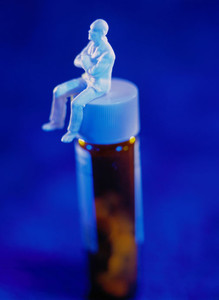The discovery and development of medical products for the prevention, diagnosis and treatment of rare diseases has been a public health priority in Europe for several decades [1]. Rare diseases in this context are defined as chronically debilitating or life-threatening conditions that affect fewer than five in 10,000 people within a given community, or diseases which are unlikely to generate a sufficient return on investment for developers without incentives.
Protocol assistance, fee waivers and 10-year marketing exclusivity periods are some examples of incentives which have contributed to the regulatory approval of 156 designated orphan drugs for rare conditions in Europe, 108 of which had active designations in 2019. However, there are 4,000 to 5,000 rare diseases, estimated to affect 25 to 30 million people in Europe, which do not yet have effective treatments.
The uptake of orphan drugs across Europe has been highly variable, with the lowest uptake generally seen in countries with lower gross domestic product (GDP) per capita or those with severe fiscal constraints on public health spending. Several factors can contribute to limited use, including price, lack of clinician awareness, lack of diagnostic testing and uncertainty about innovative treatments without long-term outcomes and/or real-world data.
Prices of orphan drugs can be extremely high. However, since treatment volumes are generally very low, the total spend on orphan drugs currently accounts for only a small proportion of drug budgets. In 2019, orphan drugs accounted for only about 5.1% of total drug spending in Europe, but the growth in spending on these drugs far exceeds non-orphan drugs with total growth estimated to be 18% across the European Union in 2018. In 2019, 42 (39%) drugs with active orphan status were biologicals, up from 25% five years ago. They accounted for about 32% of total orphan drug spending.
The growing pipeline of orphan drugs will apply even greater pressure on tightly managed drug budgets in the near future. Orphan drugs generally have 10 to 12 years of market exclusivity, but many have recently lost this protection or are due to lose it soon. Specifically:
- Of the 156 orphan drugs registered in Europe in 2019 (including 56 biologicals), 48 have lost market exclusivity (including 14 biologicals).
- Between 2020 and 2029, 34 additional biological orphan drugs are due to lose market exclusivity.
- The five orphan drugs losing exclusivity by 2024 (Adcetris, Firazyr, Gazyvaro, Revestive, Vpriv) contributed approximately Euros 501 million in total spending across Europe in 2019.
As more orphan drugs lose patent protection, the potential for biosimilars to reduce costs and increase access to these treatments is becoming a key consideration in the broader discussion of healthcare sustainability. The following series of four articles will examine clinical development and commercialization challenges for biosimilar orphan drugs, and the implications for European healthcare systems.
Related articles
Challenges faced by biosimilar orphan drugs in European health systems
Commercialization challenges for biosimilar orphan drugs
Clinical development challenges faced by orphan drug biosimilar developers
Europe to revise drug similarity concept under orphan legislation
Reference
1. GaBI Online - Generics and Biosimilars Initiative. EMA and FDA agree new priorities, including research on COVID-19 [www.gabionline.net]. Mol, Belgium: Pro Pharma Communications International; [cited 2020 Oct 9]. Available from: www.gabionline.net/Policies-Legislation/EMA-and-FDA-agree-new-priorities-including-research-on-COVID-19
Permission granted to reproduce for personal and non-commercial use only. All other reproduction, copy or reprinting of all or part of any ‘Content’ found on this website is strictly prohibited without the prior consent of the publisher. Contact the publisher to obtain permission before redistributing.
Copyright – Unless otherwise stated all contents of this website are © 2020 Pro Pharma Communications International. All Rights Reserved.








 0
0











Post your comment